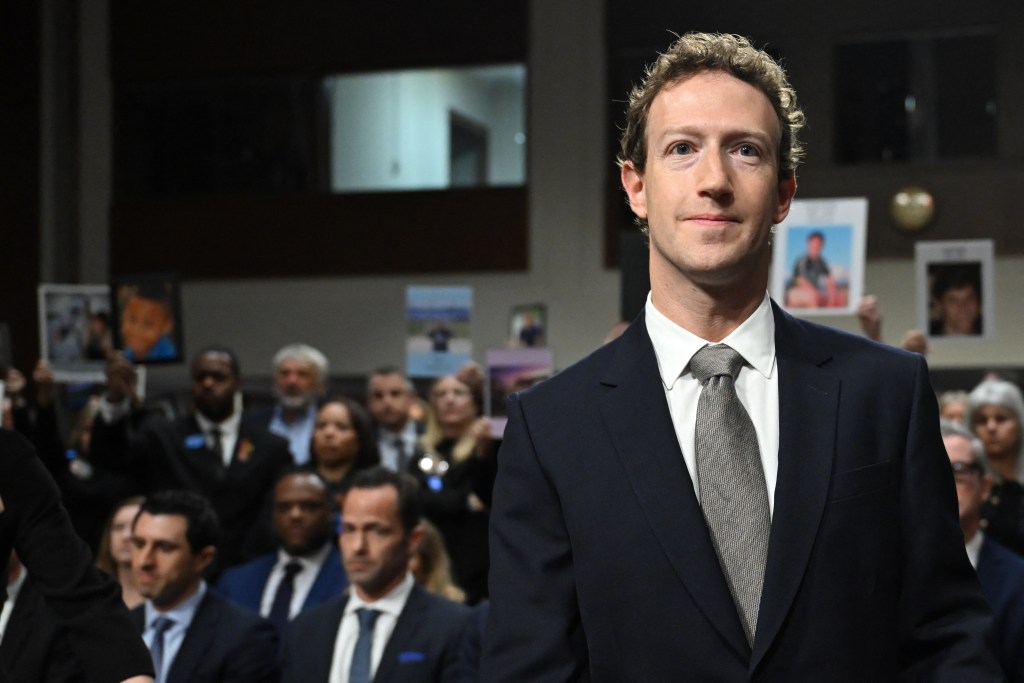Meta’s Shift: What Ending Fact-Checking Means for Trump’s Influence Online
In a landmark decision that has sent ripples through the digital landscape, Mark Zuckerberg announced the end of fact-checking on Facebook and Instagram. This strategic pivot not only raises questions about the implications for misinformation but also significantly impacts political discourse, especially regarding Donald Trump’s presence on these platforms. The removal of fact-checking mechanisms could reshape the landscape of social media accountability and influence the way political narratives are constructed and disseminated online.
The Background of Meta’s Decision
Meta Platforms, the parent company of Facebook and Instagram, has grappled with the challenge of misinformation for years. Amid growing scrutiny from regulators, journalists, and the public, Facebook initially implemented fact-checking as a means to combat the spread of false information. Third-party fact-checkers were brought in to assess the accuracy of posts, especially those from public figures and political leaders.
However, the effectiveness of these measures has been hotly debated. Critics argue that even with fact-checking, misinformation often spreads faster than corrections can be made. As such, the announcement to end fact-checking has raised eyebrows and concerns about the potential for unchecked misinformation, particularly in the context of political figures like Donald Trump, who has a history of using social media to disseminate controversial and often misleading statements.
The Implications for Misinformation
With the discontinuation of fact-checking, what does this mean for misinformation on the platforms? Here are some potential implications:
- Increased Spread of False Information: Without a system to flag or fact-check claims, the likelihood of false information proliferating on Facebook and Instagram increases significantly. This could lead to the rapid spread of conspiracy theories and misleading narratives, especially surrounding sensitive topics such as elections, public health, and social issues.
- Empowerment of Political Figures: Public figures, notably Trump, could find themselves with a significantly broadened platform to share their messages without the constraints of fact-checking. This may lead to a resurgence of previously banned content or unverified claims being disseminated freely.
- Challenges for Users: Users may find it increasingly difficult to discern fact from fiction. The removal of fact-checking could erode trust in the platforms as reliable sources of information.
Trump’s Influence: A Case Study
Donald Trump’s relationship with social media is complex and multifaceted. For years, he utilized platforms like Facebook and Instagram to communicate directly with his supporters, often bypassing traditional media filters. His posts have ranged from policy announcements to incendiary comments that have sparked national debates.
Since his initial ban from several major platforms following the January 6 Capitol riots, Trump’s influence has been a topic of extensive analysis. His return to social media—especially regarding the end of fact-checking—could reignite his ability to shape narratives and mobilize support. The implications of this are profound:
- Revitalized Narrative Control: Trump may regain the ability to control his narrative without the constraints of fact-checking. This could allow him to present his version of events, unchallenged, to millions of followers.
- Potential for Polarization: The absence of fact-checking could deepen the existing political divide. Trump’s supporters may be more likely to accept unverified claims as truth, further entrenching partisan beliefs.
What This Means for Political Discourse
The shift in Meta’s policy will undoubtedly have far-reaching consequences for political discourse online. Here are some considerations:
- Shifting Responsibilities: With fact-checking no longer in place, the responsibility for discerning truth may shift entirely to the users. This raises questions about media literacy and the ability of individuals to critically evaluate the information they encounter.
- Increased Role of Algorithms: Algorithms that prioritize engagement over accuracy may become more influential in determining what content is seen. This could lead to a further amplification of sensationalist or misleading content that drives engagement but lacks factual basis.
- Regulatory Scrutiny: The decision may invite increased scrutiny from regulators and advocates concerned about misinformation. As the boundaries of free speech and accountability are tested, we may see calls for new regulations governing online platforms.
Potential Solutions and Future Outlook
While the end of fact-checking on Meta’s platforms presents significant challenges, it also opens a dialogue about potential solutions and the future landscape of online discourse. Here are some possibilities:
- Promotion of Media Literacy: Encouraging users to critically evaluate sources and claims could mitigate the spread of misinformation. Educational initiatives that focus on digital literacy could empower individuals to discern fact from fiction.
- Decentralized Fact-Checking: Exploring community-driven fact-checking initiatives may provide alternative methods to assess the veracity of claims. Platforms could facilitate user-led verification efforts, creating a more engaged and informed user base.
Conclusion
Meta’s decision to end fact-checking represents a significant shift in the dynamics of social media accountability. As misinformation threatens to proliferate in the absence of these safeguards, the implications for political discourse and figures like Donald Trump are profound. While challenges abound, they also present an opportunity for society to engage in meaningful discussions about the future of communication, truth, and responsibility in the digital age. As users, regulators, and platforms navigate these uncharted waters, the importance of critical thinking and informed discourse has never been more crucial.
See more Future Tech Daily

